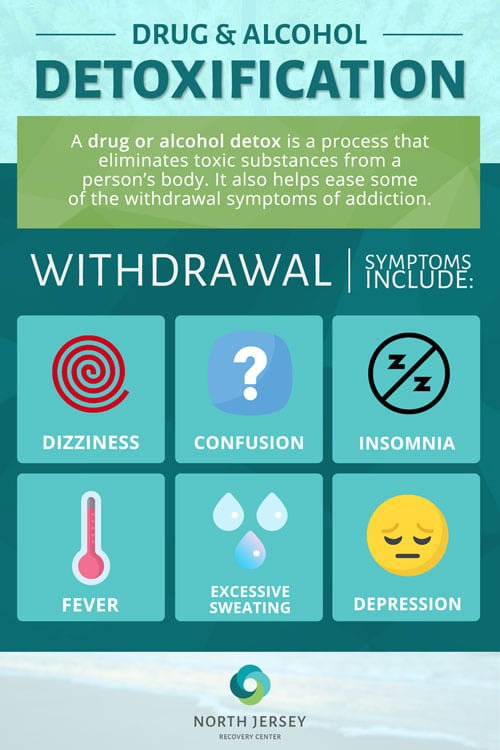What is Drug and Alcohol Detox?
A drug or alcohol detox is the process of eliminating substances from a person’s body. The reality of detox is different for everyone. Withdrawal symptoms can take a few days, or it can be a lengthy process. The detox process is the beginning of the journey towards sobriety. North Jersey Recovery Center does not offer detox however our treatment specialists can recommend you to an accredited detox program in New Jersey.
Detoxification success is dependent on when the individual begins the program if they stay on the program, and if they are obedient to the protocol. Individuals who do this are the most successful in the detox journey. Detoxing from substances is very complex. Stopping the use of substances cold turkey can be dangerous.
For More Information About Treatment Options
At North Jersey Recovery Center, we do not offer detox as part of our treatment process. However, detoxing is your first step towards sobriety, and recommend you find an accredited facilities that can assist. After detoxing, a great treatment program is essential for success. After you or your loved one completes detox, you can join an inpatient or outpatient program for continued recovery. To find out more information on the programs we offer here at North Jersey Recovery, please contact us and start your journey to success.









